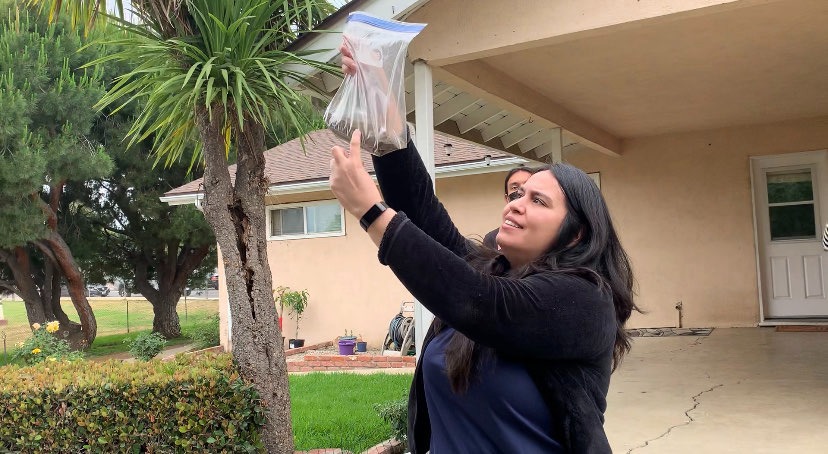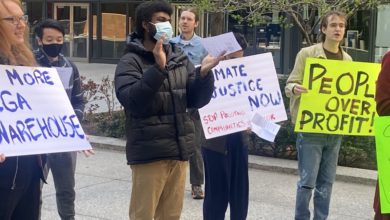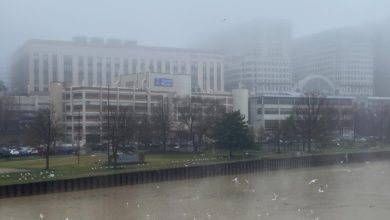“Community organizers in the San Gabriel Valley of Los Angeles have been intensifying the demand to shut down a local lead battery smelter, Quemetco, which has had a history of polluting nearby communities for decades. This intensification occurred after Quemetco requested permit modifications by the Southern Coast Air Quality Management District to expand their operations by 25%, which would increase its operations from processing 600 tons per day of lead-containing materials to 750 tons per day. This expansion request, if granted, would also allow Quemetco to operate its lead smelting furnaces 24 hours a day, 7 days a week.”
Who is Quemetco?
Quemetco is long-time lead battery smelter that began its operations in 1959 and is located in the City of Industry in Los Angeles. As a rapidly shrinking industry, Quemetco is currently the last lead battery smelter in California and one of three in the United States, operating within 600 feet of numerous low-income residential communities of Avocado Heights, Hacienda Heights and La Puente that are predominantly Latino. These communities are ranked in the 86th to 97th percentile of the CalEnvironScreen website, meaning that these are some of the worst polluted areas in all of California.
As a smelting facility, Quemetco recycles lead batteries, which emits extremely toxic carcinogens and heavy metals like lead, arsenic and benzene among others that are known to be harmful to humans. Even though Quemetco claims to run the “cleanest lead recycling facility in the world,” people in nearby low-income communities have been complaining of suffering from cancer, respiratory problems and other health issues. Even more heinous, Quemetco knowingly produces toxic gases although there are 21 schools within a 2 mile radius of Quemetco’s production facilities.
Yvette Vasquez, resident of Avocado Heights, told Liberation, “I feel like I was a healthy person, and there wasn’t a history of cancer in my family…I developed a rare type of blood cancer, non-Hodgkin’s lymphoma. I had two tumors… and it was a really weird situation like how does a healthy twenty-something year old suddenly get this? So I really attribute it to my environment.” Quemetco continues to deny any responsibility for the impact the community has suffered due to its operations.
Quemetco vs. the people
Quemetco has been operating with a permit that expired in 2015. During this time, it has amassed 29 violations from the state, resulting in Quemetco having to pay a total fine of $600,000 (which is only 0.03% of the parent company’s revenue).
There has been scant action from regulation institutions like South Coast Air Quality Management District as well as glaring conflicts on interests that fail to hold Quemetco responsible. SCAQMD unanimously appointed Wayne Nastri as an executive officer despite Nastri’s obvious ties to Quemetco as an environmental consultant at the time of widespread regulatory violations. It is clear that the SCAQMD’s loyalties lie with corporations degrading the environment and not the communities suffering from toxicity-related health problems.
Community takes action
Frustrated by widespread regulatory failures and accountability against Quemetco, the community is now taking much-needed action to protect their community and children, with the ultimate goal of shutting down Quemetco operations. To do so, community members are set to launch a campaign to collect soil samples from neighborhood homes to determine toxic metal levels in the area as well as surveys to track health problems.
Even though previous soil sampling was conducted in the area, the results were either outdated or classified. Regardless, the results were shocking. California law determines that the “safe” level of lead is 80 parts per million (ppm). When this soil sampling was done in the area in 1991-1992, there were houses that had anywhere between 600-800 ppm of lead. One business nearby Quemetco had their soil tested and had 10,300 ppm of lead. Lead bioaccumulates in the soil, meaning that if there is no cleanup (which neither Quemetco or the County have done), then the lead will remain in the soil for hundreds to thousands of years, thus impacting future generations who live in these areas.
The path forward
Quemetco’s blatant disregard for the environment and the health of surrounding communities is a clear example of capitalism’s disregard for humanity in search of profits and is a classic case of environmental racism. The surrounding residential communities, primarily in unincorporated Los Angeles County, were forced to take matters into their own hands because neither Quemetco or regulating institutions have taken any measures against egregious violations. Instead, Quemetco was allowed to continue polluting the environment and walked away with a slap on the wrist.
It is clear that neither Quemetco or state agencies can be trusted to fix their violations. The only way forward to force systemic change is through building collective people’s power. We stand in solidarity with the community in their fight to prevent the expansion of Quemetco production and to fully terminate Quemetco’s operations once and for all.






